Manufacturers
- Abracon
- Adam Tech
- Aerospace, Defense & Marine
- Agastat
- AIC
- AKM Semiconductor
- Alcoswitch
- Allegro
- Alps Electric
- Altera
- AMI Semiconductor
- AMP
- ams
- Analog Devices (ADI)
- Aptina Imaging
- Atmel
- Avago / Broadcom
- AVX
- Axicom
- Bccomponents
- Beyschlag
- BI Technologies
- Bourns Inc.
- Bowei Integrated Circuits
- Bridgelux
- Buchanan
- California Micro Devices
- Catalyst Semiconductor
- CGS
- Cirrus Logic
- Citizen Electronics
- CML Microcircuits
- Coiltronics
- Cooper Bussmann
- Corcom
- Core Logic
- Cree
- CSR PLC
- CTS
- Cypress Semiconductor
- Dale
- Data Image
- Deutsch
- Diodes Incorporated
- DOMINANT Opto Technologies
- E-T-A
- Eaton
- ECS
- Edison Opto
- Elcon
- EPCOS
- Epistar
- Epson
- Everlight Electronics
- Exar
- Fairchild Semiconductor
- FCI
- Freescale Semiconductor
- Fremont Micro Devices (FMD)
- Fujitsu Semiconductor
- Fulltech Electric
- General Semiconductor
- Harvatek
- Holsworthy
- Hsuan Mao Technology
- IDT
- Infineon Technologies
- Innolux
- International Rectifier (IR)
- Intersil
- IRC
- ISSI
- IXYS-IC
- Jing Cheng Electronical
- JL World
- Johanson Dielectrics
- Johanson Technology
- JRC / NJR
- JST
- KEC
- Kilovac
- Kingbright
- Kyocera Industrial Ceramics
- LEDiL
- Linear Technology / ADI
- Lite-On Technology
- Littelfuse
- Lumex
- Lumileds
- Luminary Micro
- Luminus Devices
- Macronix
- Maojwei / ZJPT
- Maxim Integrated
- MCC
- Mean Well Enterprises
- Microchip Technology
- Micron
- Microsemi
- Mini-Circuits
- Molex
- Murata Manufacturing
- Murata Power Solutions
- MWT
- National Semiconductor
- Nichicon
- Nippon Chemi-Con
- NJR / JRC
- NVE
- NXP Semiconductors
- OEG
- Omnivision
- ON Semiconductor
- Optek Technology
- Optrex
- OSRAM Opto Semiconductors
- OTAX
- Panasonic
- Peregrine(pSemi)
- Potter & Brumfield
- Power Integrations
- PowerStor
- Preci-Dip
- Prewell
- Products Unlimited
- Pulse Electronics
- PulseCore Semiconductor
- Qorvo
- Raychem
- Renesas Electronics
- RFMD
- Richtek Technology
- ROHM Semiconductor
- Rubycon
- Samsung Electro-Mechanics
- Samsung Semiconductor
- Schaffner
- Schrack
- Seiko Instruments, Inc. (SII)
- Semtech
- Sensata
- Seoul Semiconductor
- Sfernice
- Sharp Display
- Sharp Microelectronics
- Silicon Labs
- Siliconix
- Skyworks Solutions
- SoniCrest / JL World
- Spansion
- Sprague
- Stanley Electric
- STMicroelectronics
- Sunny Electronics
- Susumu (SSM)
- Taimag
- Taiyo Yuden
- TDK
- TDK-Lambda
- TE Connectivity
- Teccor
- Texas Instruments (TI)
- Thin Film
- Tianma Micro-electronics
- TOCOS
- TOKO
- Toshiba Electronic Components
- TT Electronics
- Tusonix
- TXC
- Tyntek
- Vishay
- Vishay Precision Group
- Vitramon
- Walsin Technology
- Weidmuller
- Welwyn
- Wickmann
- Winbond
- Xilinx
- Yageo
- Zetex Semiconductors
- ZJPT / Maojwei
News
NJR has begun to provide samples of excitation amplifier NJU7870
2021-01-18 | ReturnThe NJU7870 realizes easy design of resolver excitation circuit, miniaturization of mounting board and ECU*1, weight saving and improvement of reliability.
General Description
High precision angle detection and high safety are required for drive motors in eco-friendly cars such as hybrid cars and electric cars, so the resolvers (angle sensors) that are used to detect the angle of drive shafts and rotating shafts play an important role.
The resolver system requires an R/D converter that converts the detected resolver signal into a digital signal and an excitation circuit that outputs an excitation signal to the resolver.
NJR has developed the resolver excitation amplifier NJU7870 as a high performance resolver system with TAMAGAWA SEIKI that has a high market share and market performance in resolvers and R/D converters.
*1 ECU : Electronic Control Unit
Features
1. The excitation circuit of voltage input and current output that is suitable for resolver excitation reduces the design time.
In the conventional discrete configuration, when configuring an excitation circuit of voltage input and current output (current control mode), there are some problems such as the complexity of circuit design increases since the resolver is an L load, and simple calculation and measurement are not matching, so it took a lot of design effort to obtain the desired characteristics.
The NJU7870 integrates the excitation circuits of differential voltage input and differential current output and achieves optimum circuit characteristics for resolver driving.
It is a very simply and easy-to-use IC that only inputs a differential voltage signal according to the desired current amplitude, and it contributes to a significant reduction in design time that has been a problem in the conventional discrete circuit design.
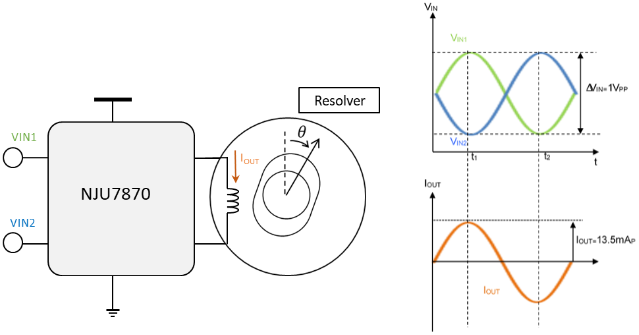
NJU7870 Excitation Circuit (Configuration of differential voltage input, differential current output)
2. Supports a wide range of resolver systems by 2 excitation circuits
Furthermore, the NJU7870 equipped 2 circuits of differential voltage input and differential current output. It is possible to control each circuit from the external input, and combine with various resolver systems such as 1-phase excitation or 2-phase excitation.
In addition, the NJU7870 achieves high precision performance matching for each phase that has been difficult to achieve with a discrete configuration. It contributes to higher performance motor angle detection in a 2-phase excitation resolver system.
Circuit configuration example
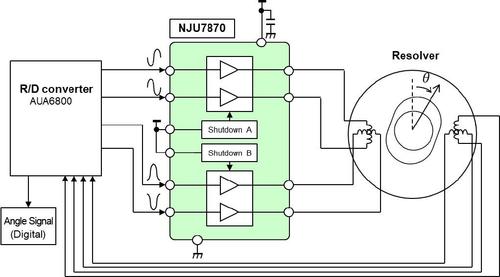
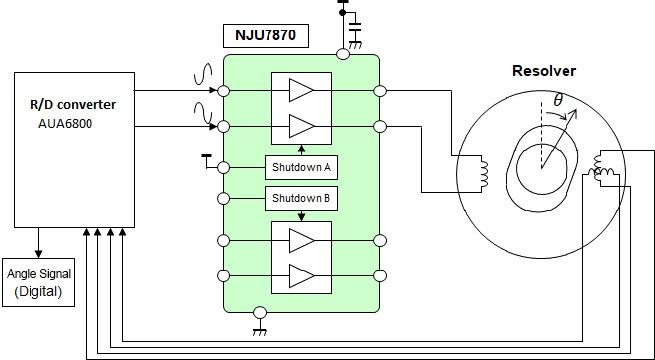
2-phase excitation 2-phase output 1-phase excitation 2-phase output
3. Integrates into the small package SSOP16, realizes miniaturization of the board with the minimum external components
The NJU7870 adopts the small package SSOP16, and the external parts are only the capacitor connected to the power supply. It contributes to a significant reduction in mounting area compared with the conventional discrete circuit configuration. (90% reduction compared with the conventional discrete circuit configuration: our research)
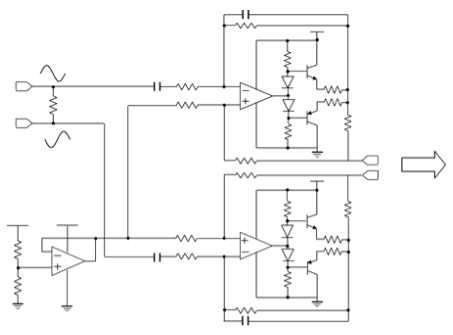
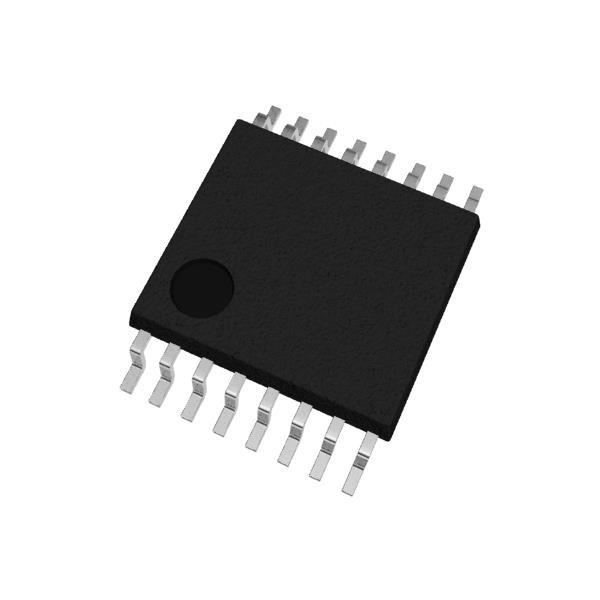
NJU7870(SSOP16: 5.0×6.4×1.2mm)
Discrete circuit configuration and NJU7870 package size
Characteristics
> Operating voltage (2.4V to 5.5V)
> Differential voltage input and differential current output
> Transconductance (13.5mAP/VPP typ.)
> Operating temperature range (Topr= -40ºC to +125ºC)
> Operating current (4mA typ.)
> Built-in thermal shutdown circuit
> Built-in external control shutdown function
> Package (SSOP16)
Application
> Angle Detection Sensor (resolver excitation circuit)
Appearance
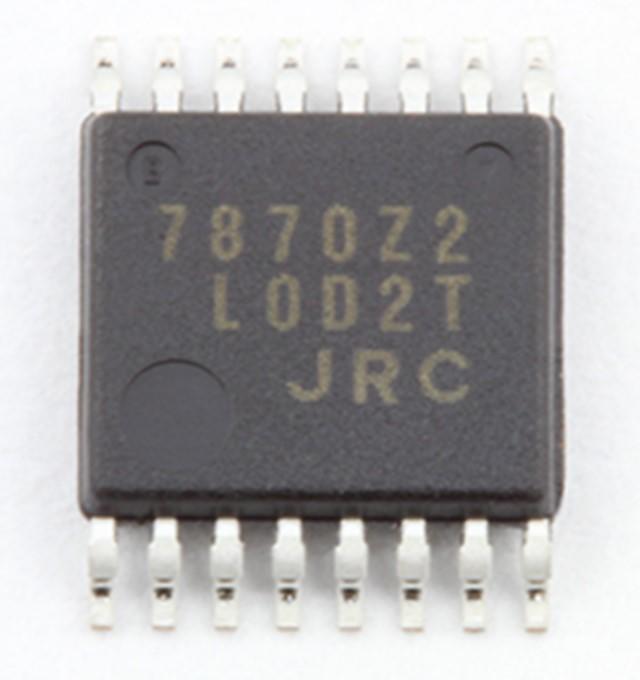
Samples and Schedule
> Samples Providing
> Schedule Mass production from April, 2021
Source:http://www.njr.com/





